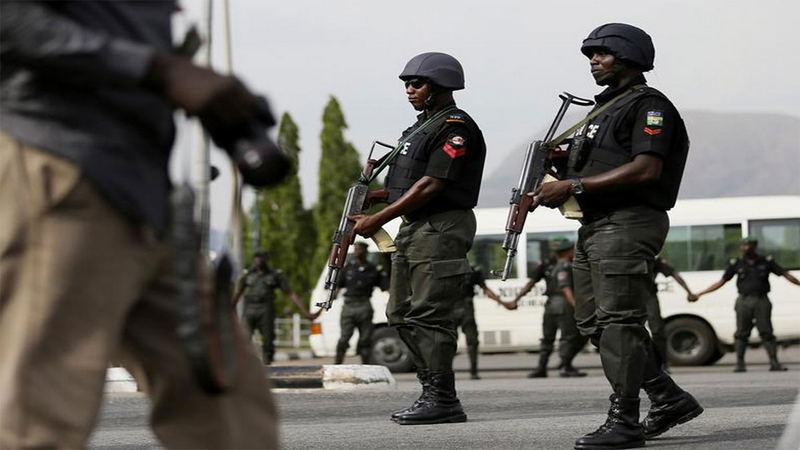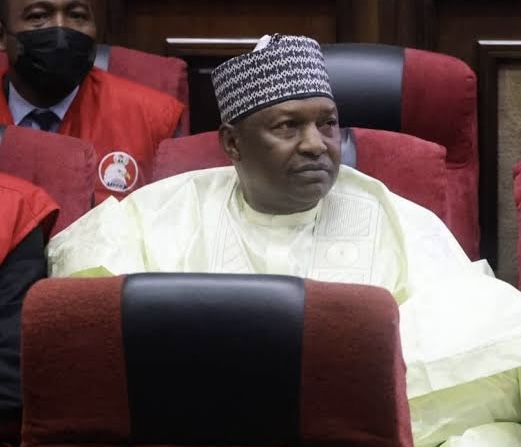🌿 Ruzu Non-Alcoholic Herbal Bitters
Ruzu Non-Alcoholic Herbal Bitters is a natural health supplement specially formulated to:
- ✅ Promote general wellness
- ✅ Detoxify the body
- ✅ Support the treatment of various ailments
Made from a powerful blend of 100% organic and medicinal herbs, Ruzu is completely alcohol-free, making it ideal for:
- 👪 All age groups
- 🌱 Health-conscious individuals
- 🌿 Anyone seeking non-alcoholic herbal remedies
Whether you're looking to boost your vitality, cleanse your system, or support healing the natural way, Ruzu Bitters offers a trusted herbal solution.
As Nigeria and other sub-Saharan African nations increasingly rely on domestic banks to fill financing shortfalls, the International Monetary Fund (IMF) has reported that they are paying more to borrow domestically than overseas, increasing risks for lenders and limiting private investment.
Along with warning that new domestic public borrowing is “much more expensive than external borrowing” in many nations, the IMF also noted that a strong reliance on banks is driving up finance costs and “crowding out private-sector investment.”
During the ongoing IMF/World Bank meetings in Washington, DC, Abebe Aemro Selassie, the Director of the IMF’s African Department, made the revelations during the Regional Economic Outlook on Africa.
“Across the region, the domestic cost of capital is still elevated,” he stated.
High transaction costs and lending spreads, fragmentation, illiquidity, and shallow depth are characteristics of undeveloped local financial markets.
“In sub-Saharan Africa, domestic bank holdings of sovereign debt are large and growing faster than in the rest of the world, creating a vicious potential feedback loop” whereby deteriorating government finances threaten banks’ soundness, restrict credit, and increase fiscal stress.
“Our assessment six months ago highlighted the region’s strong policy efforts and that growth had exceeded expectations in 2024,” Selassie said.
As evidenced by tighter financial markets, softer commodity prices, and decreased demand, we also observed a sudden realignment of global priorities and more unstable external conditions.
“The region’s resilience and recuperation are still being put to the test today by these global headwinds. In 2025, Sub-Saharan Africa’s economic growth is predicted to remain stable at 4.1%, with a slight increase anticipated in 2026.
This shows that macroeconomic stabilization and reform initiatives in important economies are still making headway. Benin, Côte d’Ivoire, Ethiopia, Rwanda, and Uganda are some of the nations with the fastest rates of economic growth in the world. Resource-intensive and conflict-affected nations, however, nevertheless confront many obstacles, and their per capita income has only slightly increased.
The director of the African Department pointed out that the outside world is still difficult.
“Commodity prices are diverging and global growth is slowing down,” he remarked. Cocoa, coffee, copper, and gold prices are still high, while oil prices are falling.
The terms of external borrowing have somewhat improved, enabling several nations to access global finance markets, most recently Kenya and Angola.
“The state of aid and international trade policy has also gotten worse. Preferential access under the African Growth and Opportunity Act has ended, and export duties to the US have gone up. Growth is being hampered by the general uncertainty surrounding trade policy, even though direct exposure is generally low for the majority of the region’s nations.
“Several weak and lower-income economies are particularly vulnerable to the anticipated steep decline in foreign help.
Due to their limited fiscal headroom, the affected governments have attempted to reallocate budgetary resources, but their options are restricted.
In particular, he stated: “The region’s impressive resiliency is heartening. But in the upcoming months, this will be put to the test once more. The following are stress points: inflation that has decreased regionally but is still in the double digits in roughly one-fifth of the region; a shift toward domestic financing that is strengthening the bond between sovereign banks; and external banks that are under pressure and must be rebuilt. Increasing debt service costs are pushing out development spending.
He stated: “Our October 2025 Regional Economic report shows significant potential for countries in the region to raise revenues through comprehensive tax policy reforms and improved tax administration,” in light of this challenging environment. This includes eliminating wasteful tax expenditures, strengthening enforcement through targeted compliance tactics, and modernizing tax systems through digitalization. Nevertheless, these endeavors must surpass technical modifications.













